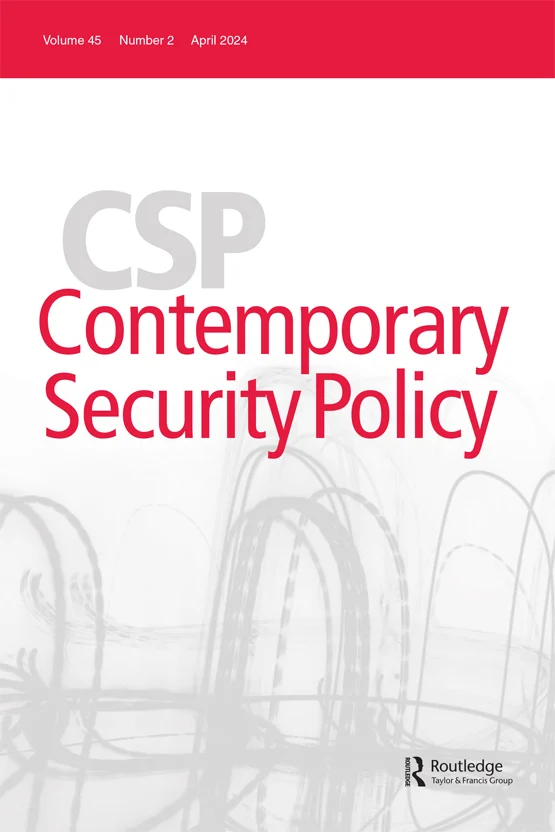欧洲防务的联合差异化:根据战略和政治复杂性调整永久结构合作(PESCO)
IF 5
1区 社会学
Q1 INTERNATIONAL RELATIONS
引用次数: 5
摘要
摘要:国防工业的碎片化、制度框架的多样性、战略文化的分歧以及国内对一体化的反对,使欧洲难以维持有意义的国防合作。欧盟最近对国防一体化的尝试结合了多种形式的差异化来克服这些障碍,永久结构合作(PESCO)的特点是选择性成员、外部参与和基于项目的集群。这种“综合差异”提供了一个有启发性的例子,说明欧盟的做法和原则如何有助于有意义的国防合作,尽管布鲁塞尔在外部往往被认为是一个软弱的行动者。它还说明了如何在单一结构中体现不同形式的差异,以适应战略偏好的复杂性。本文以PESCO为例,展示了“联合差异化”是如何作为对欧洲防务格局性质的回应而出现的,以及成员国之间关于如何应对特定挑战的辩论如何随着时间的推移而导致进一步的差异化。本文章由计算机程序翻译,如有差异,请以英文原文为准。
Combined differentiation in European defense: tailoring Permanent Structured Cooperation (PESCO) to strategic and political complexity
ABSTRACT
Sustaining meaningful defense cooperation in Europe is made difficult by defense-industrial fragmentation, a multiplicity of institutional frameworks, divergent strategic cultures and domestic opposition to integration. The European Union’s recent foray into defense integration incorporates multiple forms of differentiation to overcome these barriers, with Permanent Structured Cooperation (PESCO) characterized by selective membership, external participation, and project-based clustering. Such “combined differentiation” offers an instructive example of how EU practices and principles can contribute to meaningful defense collaboration, even though Brussels is often thought a weak actor externally. It also illustrates how distinct forms of differentiation can be embodied within a single structure to accommodate complexity in strategic preferences. Using the example of PESCO, this article shows how “combined differentiation” has emerged as a response to the nature of the European defense landscape and how debates between member states about how to respond to specific challenges have brought about further differentiation over time.
求助全文
通过发布文献求助,成功后即可免费获取论文全文。
去求助
来源期刊

Contemporary Security Policy
Multiple-
CiteScore
14.60
自引率
6.80%
发文量
22
期刊介绍:
One of the oldest peer-reviewed journals in international conflict and security, Contemporary Security Policy promotes theoretically-based research on policy problems of armed conflict, intervention and conflict resolution. Since it first appeared in 1980, CSP has established its unique place as a meeting ground for research at the nexus of theory and policy.
Spanning the gap between academic and policy approaches, CSP offers policy analysts a place to pursue fundamental issues, and academic writers a venue for addressing policy. Major fields of concern include:
War and armed conflict
Peacekeeping
Conflict resolution
Arms control and disarmament
Defense policy
Strategic culture
International institutions.
CSP is committed to a broad range of intellectual perspectives. Articles promote new analytical approaches, iconoclastic interpretations and previously overlooked perspectives. Its pages encourage novel contributions and outlooks, not particular methodologies or policy goals. Its geographical scope is worldwide and includes security challenges in Europe, Africa, the Middle-East and Asia. Authors are encouraged to examine established priorities in innovative ways and to apply traditional methods to new problems.
 求助内容:
求助内容: 应助结果提醒方式:
应助结果提醒方式:


